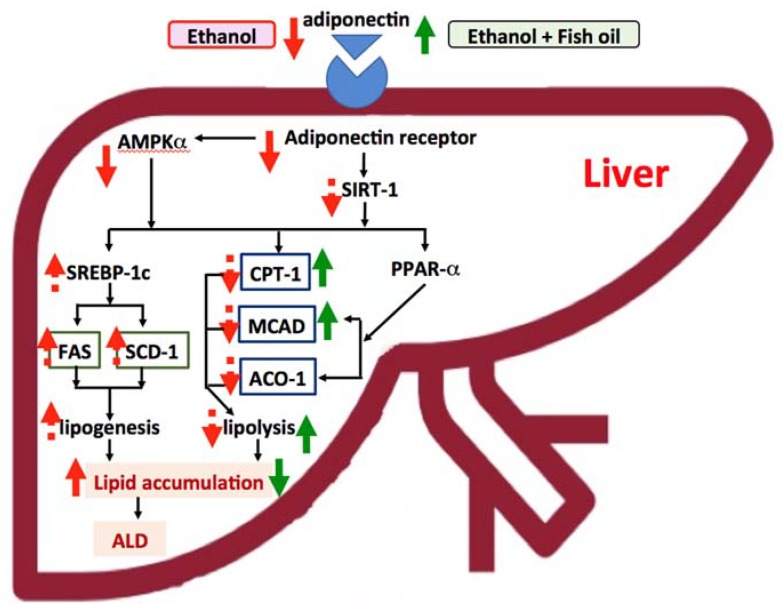Figure 3.
Effects of fish oil on improving alcoholic liver disease (ALD). The effects for ethanol are presented as red-dotted and solid-line arrows, and dotted lines are presented as up- or down-trending effects. The effects for ethanol with fish oil are presented as green solid-line arrows. (1) In this study, we indicated that chronic ethanol intake decreased the plasma adiponectin level and hepatic adiponectin receptor 2 (adipoR2) protein expression and then possibly reduced AMP-activated protein kinase α (AMPKα). Decreased AMPKα might increase sterol response element-binding protein (SREBP)-1c, fatty acid synthase (FAS), and stearoyl coenzyme A desaturase (SCD)-1 mRNA levels and improve hepatic fatty acid synthesis (only an upward trend). The change of carnitine palmitoyl transferase I (CPT1), medium-chain acyl-coenzyme A dehydrogenase (MCAD), and acyl-CoA oxidase 1 (ACO1) mRNA levels were not observed in this study. (2) With 57% fish oil substitution for olive oil, the plasma adiponectin level was significantly increased and the mRNA levels of downstream enzymes, such as hepatic CPT1 and MCAD were also elevated, which might improve the lipolysis and ameliorate hepatic steatosis in rats fed with ethanol for eight weeks. SIRT1, NAD-dependent deacetylase sirtuin-1.

